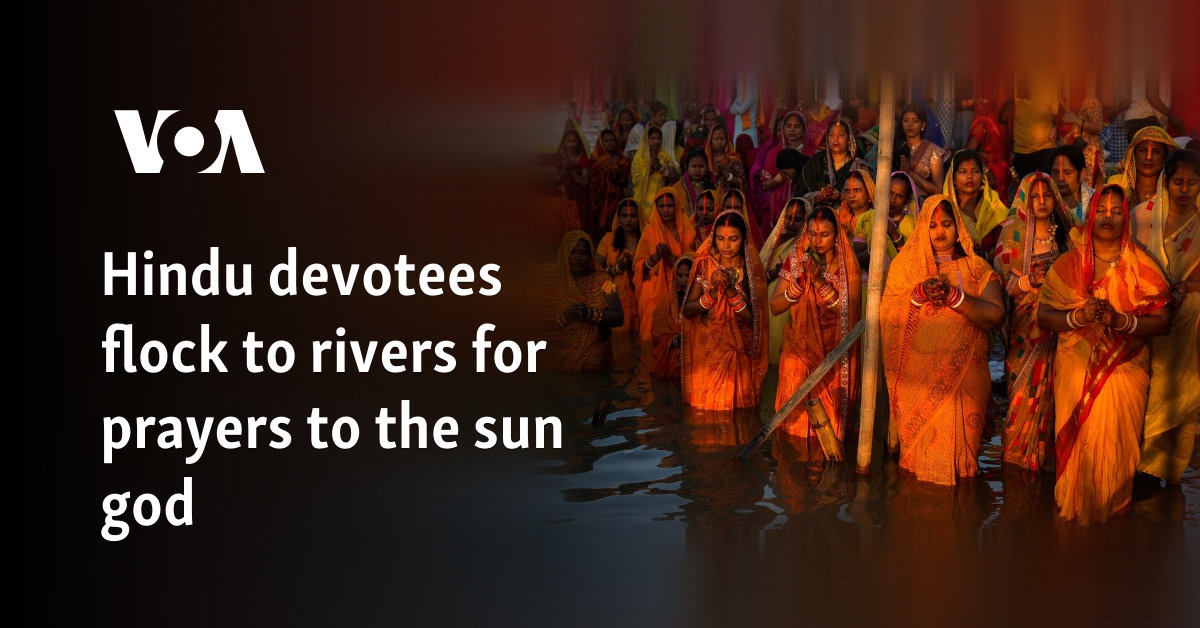This website uses cookies so that we can provide you with the best user experience possible. Cookie information is stored in your browser and performs functions such as recognising you when you return to our website and helping our team to understand which sections of the website you find most interesting and useful.


Tens of thousands of Hindu devotees flocked to rivers and bodies of water across India to pray to the sun god as part of the Chhath festival this week.
In Noida, on the outskirts of the capital New Delhi, families gathered at the Yamuna river, which is covered with white toxic foam as a result of pollutants discharged from nearby industries.
Women in brightly colored saris waded into the knee-deep water flecked with blobs of white foam. Some carried a coconut or other fruits as an offering to thank Lord Surya, the god of the sun, for sustaining life on earth as they sought divine blessings.
The Yamuna is considered one of India's most sacred rivers, and Hindu devotees have continued to use it despite warnings about the toxic foam. A court in Delhi on Wednesday forbade worshipers from performing rituals on the bank of the heavily polluted river over health and safety concerns, local media reported, yet thousands gathered on Thursday and Friday at the river banks to immerse themselves in the river and drinks it water.
From the financial capital Mumbai to Hyderabad in the south and Guwahati in the east, thousands of men, women and children did the same.
The Chhath festival, celebrated after the Hindu festival of Diwali, originated in the country's eastern states, with large celebrations in Bihar and Jharkand, and extends to Nepal. Over the years, it has grown more popular across India, often introduced as migrants from eastern states mark the festival away from home.
The rituals, which stretch over four days, include a holy dip in the river and a period of fasting and abstaining from drinking water. On the last two days, devotees stand in the waters to pray to the sun as it rises and sets, with some families camping out overnight along the banks.



 Africana55 Radio
Africana55 Radio 
